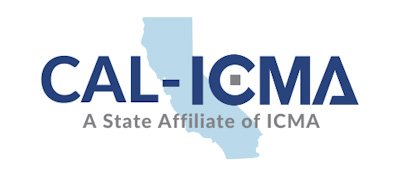Full Scholarship Awardee Sophia Rome: Demystifying AI at the 2024 ICMA Local Government Reimagined Conference
Photo: ICMA scholarship winners pictured left to right – Sophia Rome, MPA; Savita Chaudhary, MPA; and Annie Bui, MBA
Attending the 2024 ICMA Local Government Reimagined (LGR) Conference in Palm Desert, CA, was an inspiring and eye-opening experience. As a professional communicator, the thought of using AI for writing gave me an uneasy feeling. The first time I tried using an AI tool (the free version, of course), I felt like I was cheating. There was also the fear that I would lose the sense of accomplishment I get when I put together a well-written report or document. However, recently, ICMA and other professional organizations began amplifying the conversation about AI in local government, so I decided, it was time for me to really understand AI, evaluate how it could help expand my team’s capacity and remove my fears and uncertainties through knowledge.
Takeaway 1: Be ethical and transparent when using AI
When using technology, there’s always concern that information may be compromised or not used ethically. This why a policy (discussed below) is necessary for agencies to be accountable for ethical usage of AI, which includes transparency. The first fear I had with AI was the uneasy feeling that I was cheating in some way, so let me be transparent. Some of this text in this blog was generated by AI but the ideas, expressions and final revisions were made by a (this) human author. With the disclaimer out of the way, let’s go to Takeaway 2.
Takeaway 2: AI is a tool, not a replacement for human knowledge and experience
How often have you faced writer's block or constant interruptions that disrupt your train of thought? AI can help with these challenges in local government, particularly in writing, data analysis and content creation. For example, AI can identify common themes in survey comments, easing the qualitative analysis process. While AI should not replace human judgment, it can streamline tasks and increase efficiency, allowing us to accomplish more.
Takeaway 3: You need a policy – AI isn’t coming; it’s here.
Developing a suitable AI policy for your agency is essential. AI tools are common in schools and for personal use, so employees familiar with AI are likely using them at work with or without our knowledge. Also, many streamlined functions in platforms and programs we already use are powered by AI. While comprehensive policies take time, agencies should implement interim guidelines in the meantime, addressing key concerns like ethics, transparency, and privacy.
Takeaway 4: Successful implementation of AI policies and tools requires conversations and training
Like myself, others feel uneasy about AI, but open discussions about its workings and benefits are essential for developing a shared understanding. Start conversations early with staff, ensuring your executive team and managers are also well-informed. It’s important to listen to concerns and include feedback into the policy development and implementation process, but referring back to Takeaway 3, AI is already here so it’s critical to keep progress moving forward.
The ICMA LGR conference has helped me feel comfortable with AI and ready to approach the AI policy conversation with knowledge and confidence.

